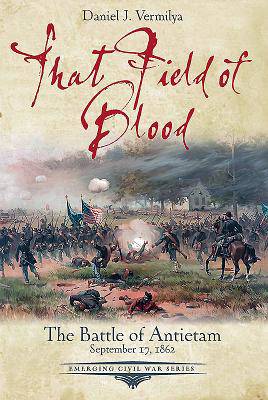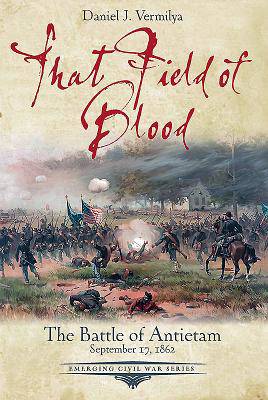
Je cadeautjes zeker op tijd in huis hebben voor de feestdagen? Kom langs in onze winkels en vind het perfecte geschenk!
- Afhalen na 1 uur in een winkel met voorraad
- Gratis thuislevering in België vanaf € 30
- Ruim aanbod met 7 miljoen producten
Je cadeautjes zeker op tijd in huis hebben voor de feestdagen? Kom langs in onze winkels en vind het perfecte geschenk!
- Afhalen na 1 uur in een winkel met voorraad
- Gratis thuislevering in België vanaf € 30
- Ruim aanbod met 7 miljoen producten
Zoeken
Omschrijving
September 17, 1862--one of the most consequential days in the history of the United States--was a moment in time when the future of the country could have veered in two starkly different directions. Confederates under General Robert E. Lee had embarked upon an invasion of Maryland, threatening to achieve a victory on Union soil that could potentially end the Civil War in Southern Independence. Lee's opponent, Major General George McClellan, led the Army of the Potomac to stop Lee's campaign. In Washington D.C., President Lincoln eagerly awaited news from the field, knowing that the future of freedom for millions was at stake. Lincoln had resolved that, should Union forces win in Maryland, he would issue his Preliminary Emancipation Proclamation. All this hung in the balance on September 17: the day of the battle of Antietam. The fighting near Sharpsburg, Maryland, that day would change the course of American history, but in the process, it became the costliest day this nation has ever known, with more than 23,000 men falling as casualties. Join historian Daniel J. Vermilya to learn more about America's bloodiest day, and how it changed the United States forever in That Field of Blood.
Specificaties
Betrokkenen
- Auteur(s):
- Uitgeverij:
Inhoud
- Aantal bladzijden:
- 192
- Taal:
- Engels
- Reeks:
Eigenschappen
- Productcode (EAN):
- 9781611213751
- Verschijningsdatum:
- 30/04/2018
- Uitvoering:
- Paperback
- Formaat:
- Trade paperback (VS)
- Afmetingen:
- 152 mm x 226 mm
- Gewicht:
- 317 g

Alleen bij Standaard Boekhandel
+ 33 punten op je klantenkaart van Standaard Boekhandel
Beoordelingen
We publiceren alleen reviews die voldoen aan de voorwaarden voor reviews. Bekijk onze voorwaarden voor reviews.









